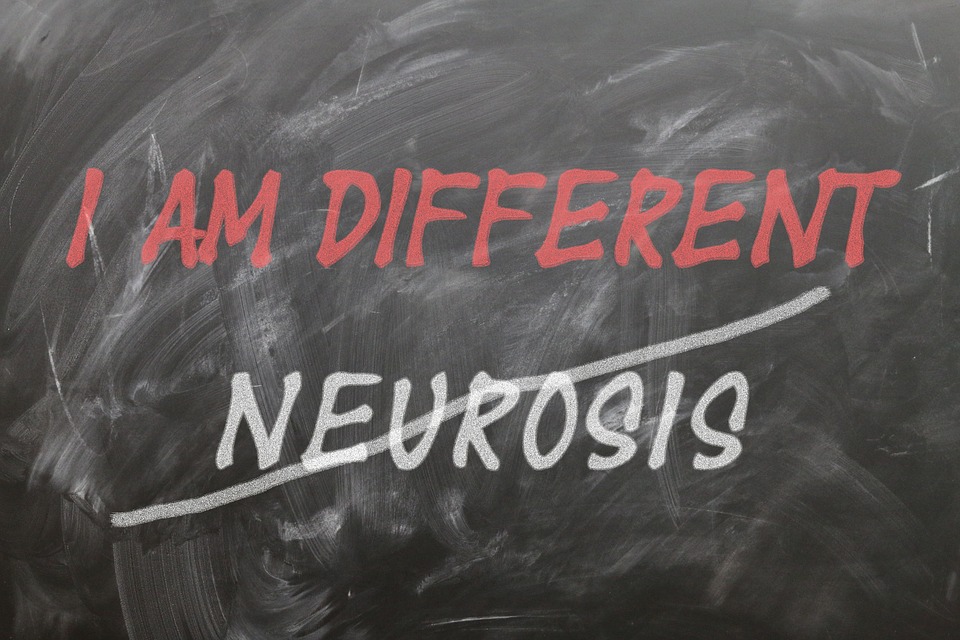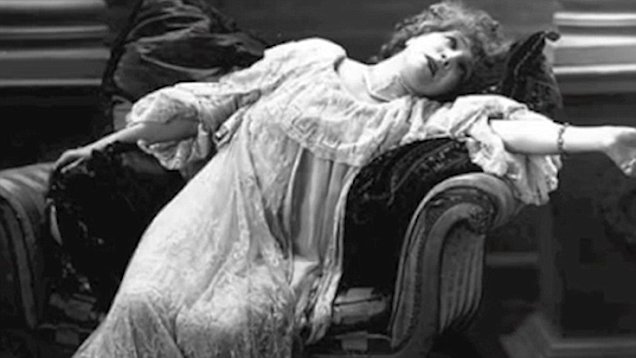Psychoneurosis Symptoms, Diagnosis, Treatments and Causes

Psycho-Neurotic is a functional nervous disorder. It is the same thing as Neurosis. It is the largest group of mental illness, most people with the Psycho-Neurotic problem are never admitted to mental hospital or clinic. A person with neurotic behaviour often shows a variety of symptoms. The symptoms are not severe enough to that will result in hospitalisation.
A person with neurotic behaviour may feel that he is worthless, inadequate, inferior and helpless. Such person may become angry too frequently and inappropriately which the state may remain so for long period of time. Such a person must be reassured of love or affection, there are several types of psychoneurotic reaction. These include:
Conversion Reaction
Is a form of hysteria ‘senseless excitement' a form of hysteria that is psychogenic in nature. This form of psychoneurotic reaction is generally produced by suggestion and may be removed by a serious degree of persuasion. Its major characteristic is the faulty synthesis personality often the condition are temporary and will disappear without any apparent explanation or with therapeutic persuasion. Hysteria means: Neurosis disorder that causes violent fits of laughing and crying.
Anxiety Neurosis
In this condition a person experience occasion of anxiety that may vary from slight inferiority complex to extreme panic but this one is due to anticipation as if something disastrous is going to happen but there is no visible proof of that disastrous experience. This may be expressed in the form of agitation, insomnia, palpitation of the heart or the fear of death. The complications of this reactions may include excessive fatigue, occasional confusion and chronic physical complaint. This reaction is an exaggeration of the behaviour that might be considered normal if it is less severe.

Phobia
A phobia is an unusual fear of someone or something for which there is no apparent sound reason or explanation of that kind of feeling. There are different interpretation for fear. Some are hesitation, ‘wonder' consternation for horror. The person with a phobia is obsessed by the irrational fear of people, things and event.
Their fear is generally derived from unconscious sources as a desire of aggressive nature. There are very many types of phobia but some of the common ones are:
- Acrophobia means fear of high places
- Agoraphobia means fear of open space
- Arachnophobia means fear of sharp object
- Anthropophobia means fear of people
- Astraphobia means fear of storms
- Batophobia means fear of falling object
- HypomonoPhobia fear of sleep
- Achluophobia means fear of crowds.
- Algophobia means fear of pain
- Nyctophobia means fear of darkness
- Claustrophobia means fear of close space
- Climacophobia means fear of falling down shires.
- Dromophobia means fear of crossing wide streets
- Hydrophobia means fear of water
- Kleptophobia means fear of stealing
- Monophobia means fear of Syphilis
- Necrophobia means fear of forest
- Zoophobia means fear of animal
The function of phobia is to try to reprive attempt to cope with internal and external danger by avoiding them.
Hypochondriasis
This refers to a person who imagines he is sick when he is well or not. Hypochondriasis or Nosophobia is a condition characterised by excessive worried about one's health, even thus there is no reasonable cause for worry or anxiety. It causes may be due to fatigue or other minors variation in body chemistry, those who have this kind of reaction have little faith in physician what they do is to stock medicine cabinet with different drugs. There is no meaningful treatment for this condition the reason there is no meaningful treatment is because those of them do not cooperate with the physician.
Neurasthenia
This condition is otherwise called Nervous Exhaustion "completely tired "it is a functional Nervous condition marked by extreme fatigue it appears to be psychogenic in origin. It most prominent symptom is excessive fatigue or slight exhaustion. A person who belongs to this group will not be mentally and emotionally concentrate, such a person is restless, has poor memory and is irritable. Such a person generally make himself a centre of all his thought, he has extreme difficulty throwing off frustration, and he has too little interest in people around him. He has too much interest in his own thoughts and actions.
Assistance we can render
Professional assistance for those with a mental health problem. What kind of assistant will you render to people with a mental problem? In some occasion, it will not be possible to works out or solve the problem alone without the help of professionals or experts. When this happens you need to seek professional assistance. Today many resources are available to help those of them with mental and emotional problems such as health services, a family physician and counselling services. However, this service may not be able to treat or assist people with a mental problem but some professionals who are specially trained on mental issues can help out. The following are specialists in the field of mental health:
The Clinical Psychologist
He specialized in caring for the functional behavioural problem which is common among college men and women.
Psychiatrist
He is a doctor who treats mental diseases or illness. He is a medical doctor who has specialised in emotional disorder. He can prescribe medication. He can use other medical technique to help manage or cure mental problems. Therefore, he is referring to as a psychologist. However, that does not mean that a Psychiatrist is a better practitioner to a Psychologist in all cases both specialist often work together. A psychiatrist is not easily available.
Psychoanalyst
He is someone who specialized in Psychoanalysis. Psychoanalysis is a technique that employed dream analysis, free association, catharsis and transference. Most psychoanalysts are more emphasis specialist than Psychiatrist. They do not necessarily possess a higher professional state than psychiatrists.
Psychiatric Social Workers
This are college graduates who have graduate education in social work. Working with a mental and emotional problem. They work with a patient and their family. They also do follow up when the patient has been discharged in other to assist him with readjustment.
Psychiatric Nurse
A nurse who is trained in the caring for the psychiatric patient. They are exposed to special training in caring for special training in caring for the mental and emotional problem. They administer various treatment prescribed for the mental patient and carry out a close observation of the Psychiatric patient.
Others Professional includes all other health workers, such as Nurses, community health extension workers of various categories.
Treatment for major problem
We want to take note that there is no type of treatment for mental illness that guarantees a successful outcome treatment is specific to diagnosis.
Psychoanalysis
This is a more sophisticated form of Psychotherapy. It is a long-term form of therapy when the patient met there psychoanalysis by appointment and takes about whatever comes to his mind this type to bring out causes of mental and emotional unless by searching into the patient early experience for this successful treatment may take some years.
Psycho Therapy appears to be the most frequently used in treating mental illness, but this psychotherapy is suitable for the functional problem. The techniques are made up of many approaches some of the approaches are individual, group, psychodrama and psychoanalysis.
Group Psychotherapy: This technique involves several patients with only one Psychotherapist. It is a supporting type of therapy when the different individual with different problem benefit. This may be used in conjunction with individual therapy.
Psycho Drama: This is a kind of special group for psychotherapy where patients talk about their problem or feelings, they also act their problem out through role play or role is taken. In some cases when a patient is acting out his role at this point skill Psychotherapy as direction interprets.
A mother who has difficulty in showing affection may have been deprived herself and in turn cannot show affection to the child. Deprived children need security, affection and recognition for their emotional maturity and mental health. Emotionally disturbed children may present first of all with symptoms for examples, recurrent abdominal pain. It is important to realise that the pain is very real and there is no such thing as imaginary pain.
Conclusion
The ideal place for the treatment of the psychiatric problem of children in a child guidance clinic. Treatment of the parents or parent substitutes is equally or perhaps more important since in a majority of the cases there is no problem child but there are problem parents. The parent to need help. Through individual and group counselling psychotherapy and casework to understand the causes of the child's and the modification of the abnormal attitudes. Co-operation of the parent is very important in the treatment of the child's problems. Day and residential facilities for children may be provided by:
- Educational services, day and residential maladjustment schools.
- Social services, family, group, homes, community.
- Health Services, day and inpatient units.
- Forensic (correctional) services among others.
A judicious balance needs to be achieved between the development of day and in-patient service, both within and without hospitals on the one hand and a range of out-patient facilities in the community on the other.
References
Mental Health - Neurosis vs Psychosis
Neurosis, psychosis, borderline and acting out
Everything you need to know about phobias
What are phobias?
How to Get Rid of Psychoneurosis?
Psychoneurotic Personality Disorder: Disease Bioinformatics
image 1
image2


Being A SteemStem Member
Thanks @steemstem @stemng. I'm very grateful!
yo write about a important topic....i like this topic post....i waiting for your next post....i hope everybody like your post...thanks for shear it..
Thanks for your words.
What do you think about moral panic? Check out this post about moral panic and drop your comment.
https://steemit.com/psychology/@juliusjamex/moral-panic-31ee2a6bf8c74
OK, I will